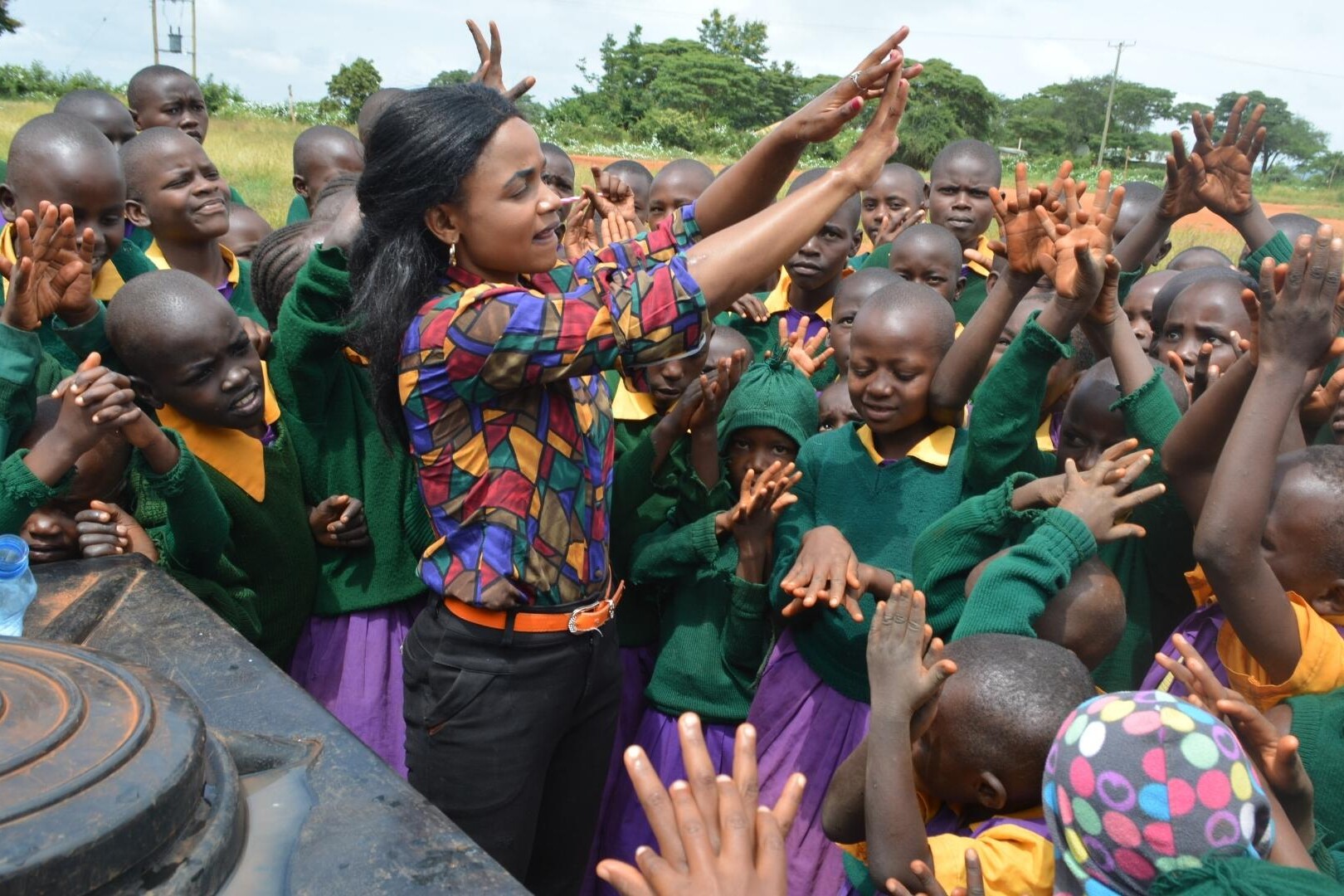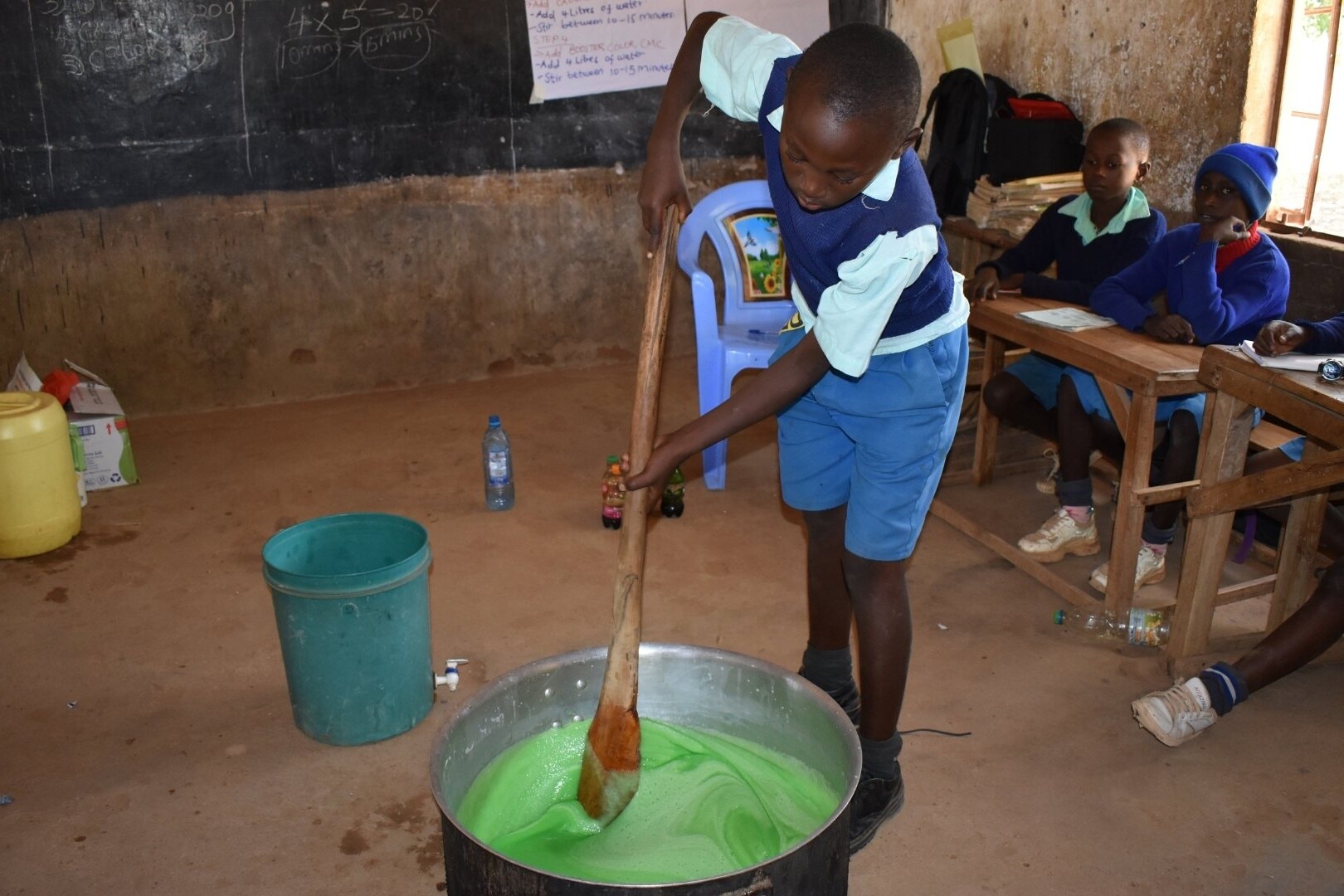
Hygiene Solutions
Hygiene Training
Communities, health staff, teachers and students are trained in the importance of hygienic practices, to prevent diseases and contamination of clean water sources.
Hygiene and social behaviour change training includes: handwashing with soap, handwashing facilities, the role of germs in disease transmission, personal hygiene, menstrual health, environmental and domestic hygiene, and understanding of the safe water chain from water collection, to storage and consumption, food hygiene, soap making, disease awareness.
We also help to set up School Health Clubs and Village Health Teams so that communities and schools have representatives for behavioural change.
Soap Making
As well as enabling better hygiene in schools and health centres, this can be used as an income generating activity, supporting better maintenance of projects and supporting poverty reduction as well.
All materials are available locally to make it a sustainable venture for any school or health centre.
